US, Turkey trade barbs in tense NATO meeting
Turkish Foreign Minister Mevlüt Çavuşoğlu and outgoing U.S. Secretary of State Mike Pompeo have traded accusations in a tense NATO meeting. While Pompeo criticized Turkey for opposing the principles and operation of NATO and undermining its cohesion, Çavuşoğlu accused Pompeo of phoning European allies and urging them to gang up on Turkey.
Duvar English
Turkey and the United States have traded barbs during a virtual meeting of NATO foreign ministers, aiming accusations at each other over various issues.
Outgoing U.S. Secretary of State Mike Pompeo slammed Turkey during the meeting on Dec. 2, accusing Ankara of stoking tensions with fellow allies in the Mediterranean and of giving a gift to the Kremlin by purchasing a Russian-made anti-aircraft system.
Turkish Foreign Minister Mevlüt Çavuşoğlu fired back, accusing Pompeo of phoning European allies and urging them to gang up on Turkey, of siding blindly with Greece in regional conflicts, and of refusing to sell Ankara U.S.-made Patriot anti-aircraft weapons, Politico reported.
Çavuşoğlu also accused the U.S. of backing Kurdish “terrorist organizations” in Syria, while Turkey fought ISIS, and insisted that the U.S. and France had worsened a conflict in Nagorno-Karabakh by backing Armenia in a war that Azerbaijan won with Turkish military support.
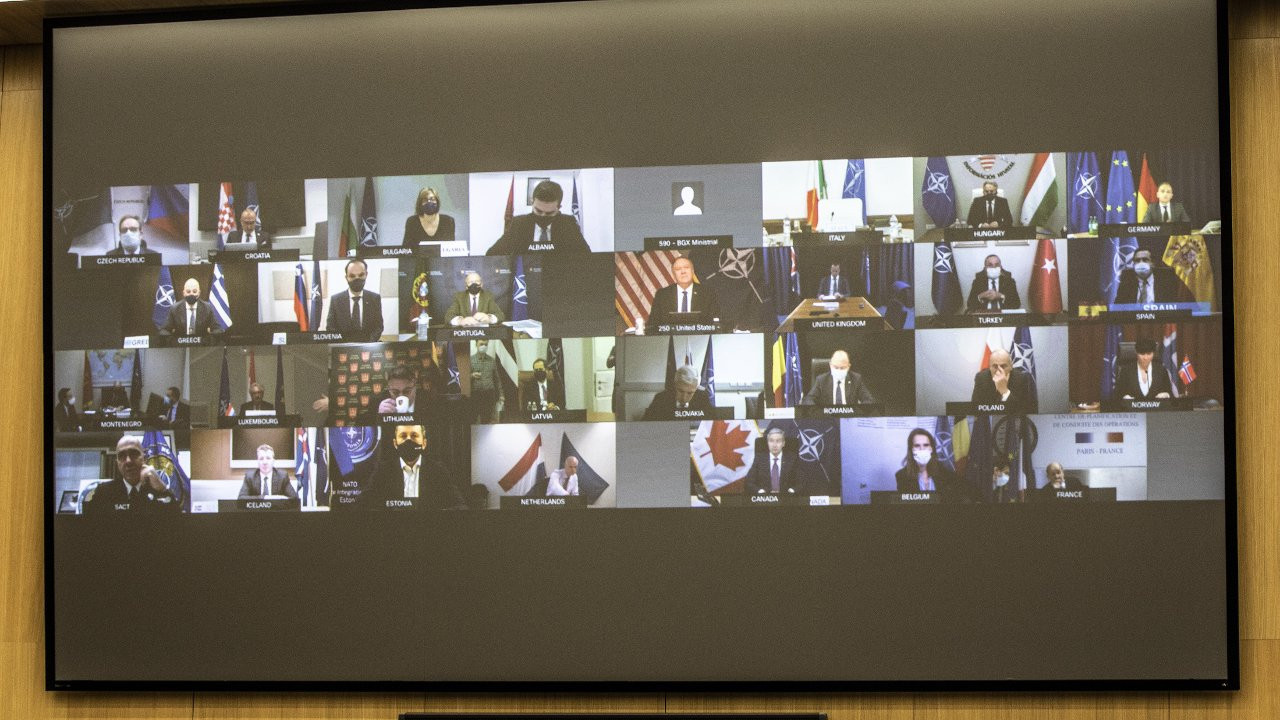
The sharp clash over videoconference, confirmed by multiple allied delegations, came as Pompeo was attending what was likely his last NATO foreign affairs ministerial on behalf of President Donald Trump — a meeting that was intended to focus primarily on a new report about how NATO should adapt for the next decade. Some diplomats speculated that Pompeo was using his last meeting to inflame tensions that could make life difficult for the incoming administration of President-elect Joe Biden.
'A code of good conduct'
The new report, by an outside group of experts, was commissioned after French President Emmanuel Macron complained last year about conflicts among allies, including Turkey, saying the alliance was experiencing “brain death.” The report urges allies to “pledge themselves to a code of good conduct” and “consider establishing a Centre of Excellence for Democratic Resilience dedicated to providing support to individual allies.”
Several allies backed up Pompeo by speaking out against Turkey, including French Foreign Minister Jean-Yves Le Drian, who denounced Ankara’s behavior and said cohesion within the alliance would be impossible to achieve if Turkey mimicked Russia’s aggressive interventionism.
By the end of the meeting, it was clear that Turkey was virtually isolated among the alliance’s 30 members. A renewed call by Çavuşoğlu for NATO to take a role in Libya’s civil war was rejected by the other allies, who have accused Turkey of exacerbating the conflict by sending weapons and mercenaries to support the Government of National Accord based in Tripoli.
After Çavuşoğlu accused Pompeo and the U.S. of taking a maximalist position in favor of Greece regarding conflicts in the eastern Mediterranean, Greek Foreign Minister Nikos Dendias hit back, saying if the Greek position is maximalist, “so is international law.”
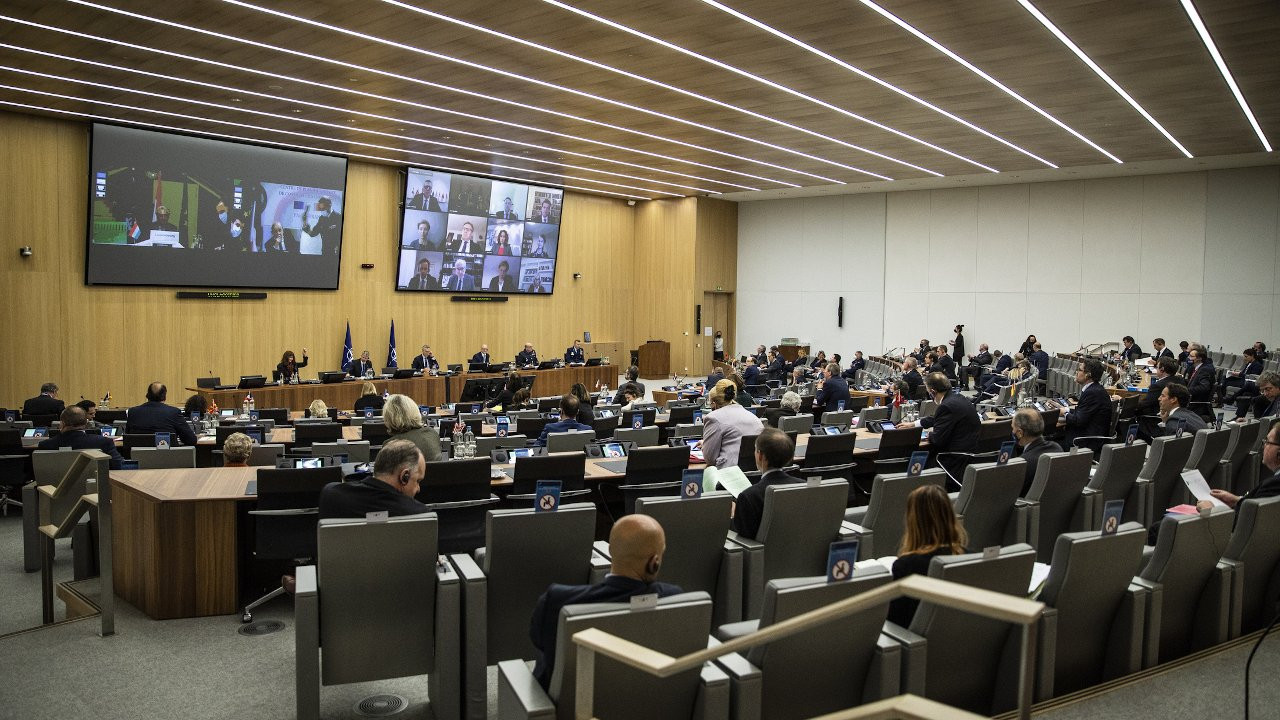
Turkey has been at fierce odds with other allies for years, but has also proven the most militarily assertive NATO member, and particularly adept at achieving its objectives with hard power.
Turkish President Recep Tayyip Erdoğan interceded not just in Libya, but also in Syria, where he and Russian President Vladimir Putin largely fashioned the outcome that has kept Bashar al-Assad in power. Most dramatically, Turkey helped Azerbaijan achieve victory in its three-decade conflict with Armenia over Nagorno-Karabakh, with Baku reclaiming swaths of territory.
Çavuşoğlu accuses Berlin of 'piracy'
According to NATO diplomats, Çavuşoğlu had a mixed message on Germany, praising Berlin for acting as an “honest broker” in trying to mediate the conflicts in the Mediterranean but also accusing the Germans of “piracy” over an incident in which German naval forces intercepted and boarded a Turkish ship suspected of trafficking weapons. The Germans were acting under an EU-led arms control mission.
At a news conference, NATO Secretary General Jens Stoltenberg sidestepped a question about the sharp exchange between Pompeo and Çavuşoğlu, and instead noted that a NATO “deconfliction mechanism” had helped to ease the conflict between Athens and Ankara.
“We have seen that the deconfliction mechanism has helped to reduce the risk of incidents and accidents,” between the Greek and Turkish militaries, Stoltenberg said. But he added, “it is not solving the underlying main problem.”
That, he said, would depend on a German-led mediation effort, and “the political will of Greece and Turkey.”

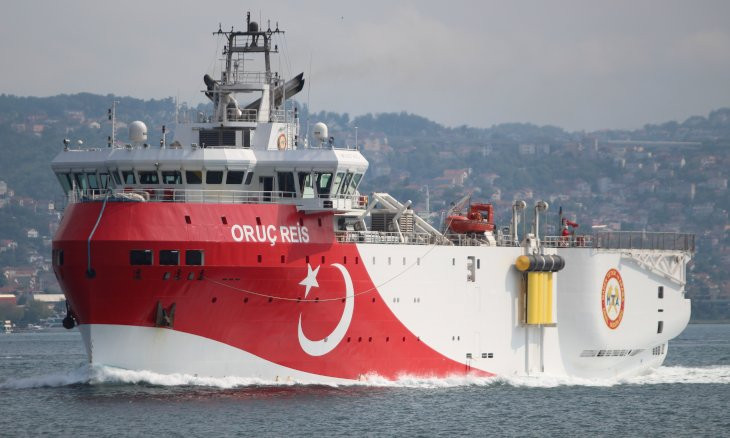 Turkey ready for dialogue with Greece 'without preconditions' on Mediterranean disputeDiplomacy
Turkey ready for dialogue with Greece 'without preconditions' on Mediterranean disputeDiplomacy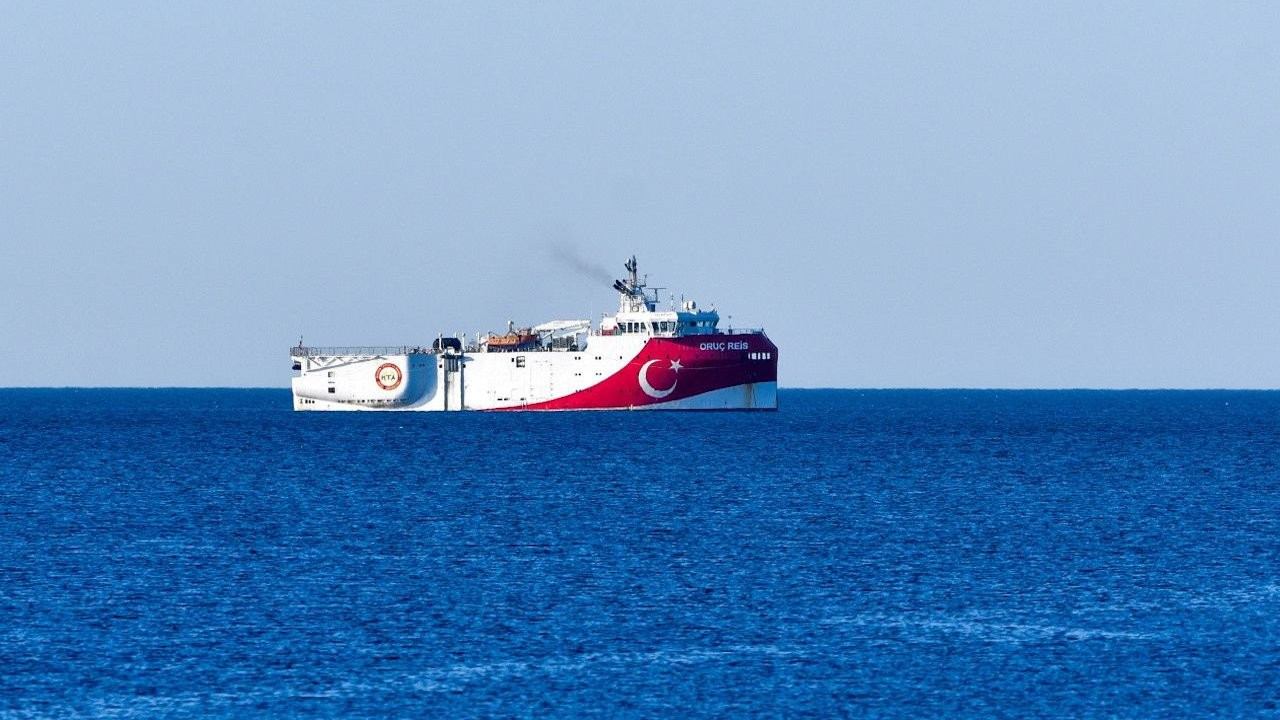 Turkish exploration vessel Oruç Reis back in port ahead of EU summitDiplomacy
Turkish exploration vessel Oruç Reis back in port ahead of EU summitDiplomacy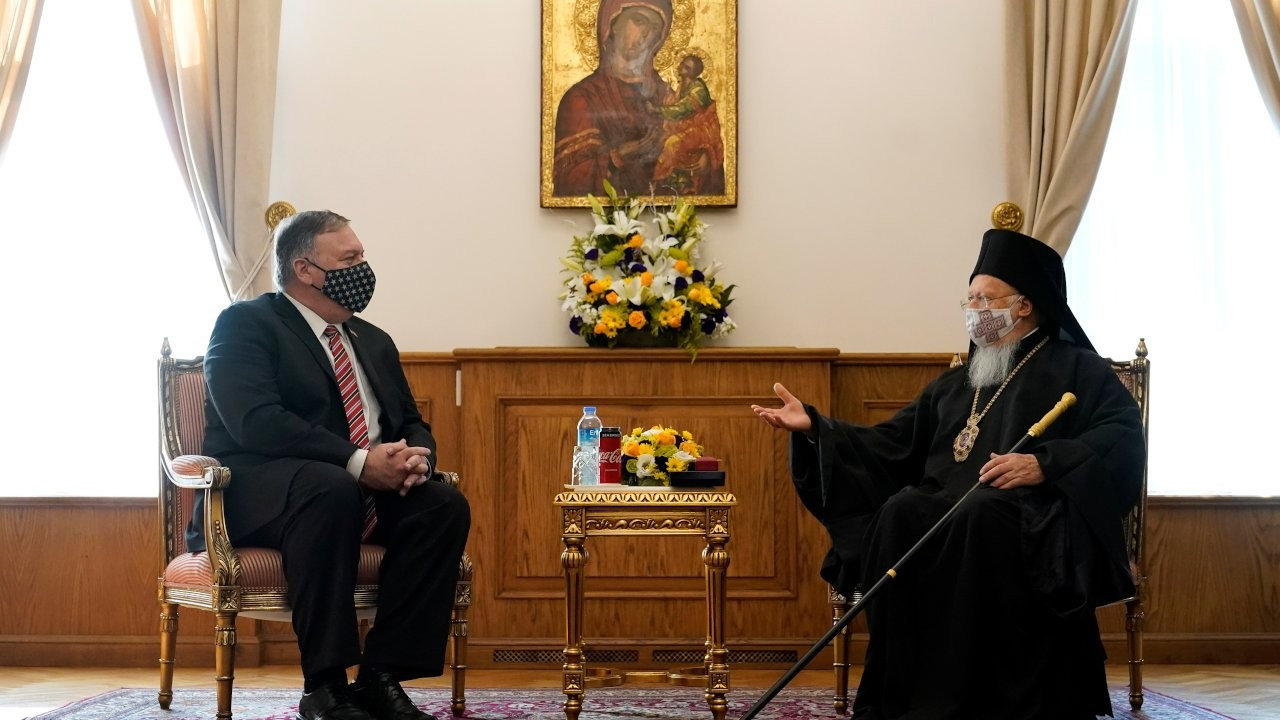 Pompeo says Europe, US need to work together to address 'Turkey's very aggressive actions'Diplomacy
Pompeo says Europe, US need to work together to address 'Turkey's very aggressive actions'Diplomacy